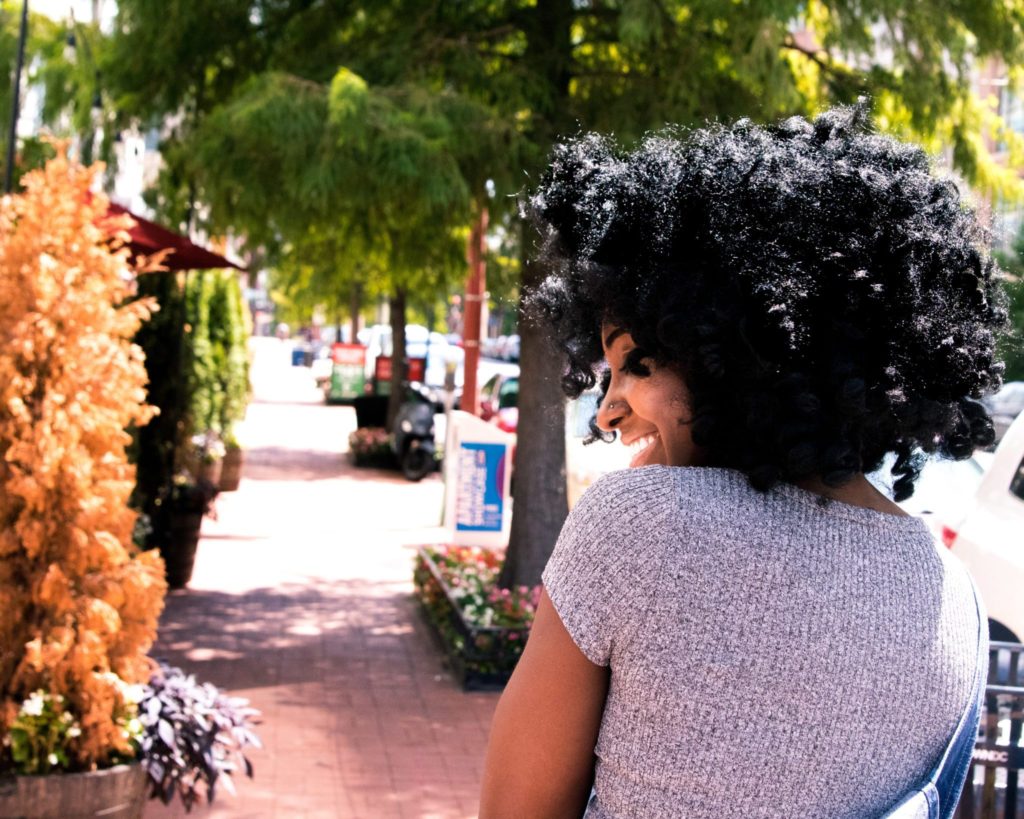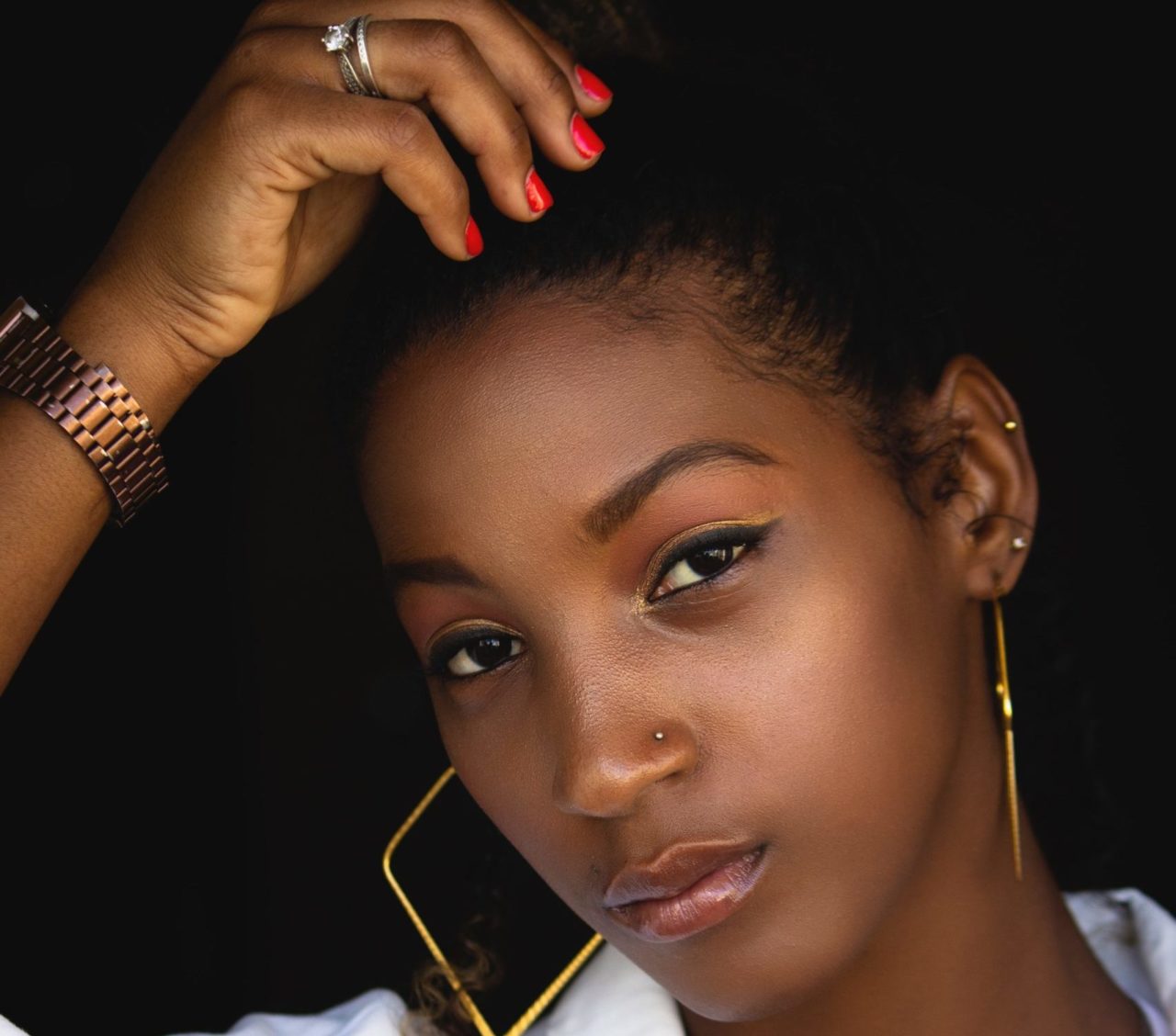I thought that going natural 9 years ago was purely about embracing my budding Black womanhood and shunning the euro-centric gaze on how my hair naturally grows. It turns out that it was much more than that. For many, the return to natural hair was protection from processes that genuinely mean harm. Hair relaxers recently made the news and left a potent (and familiar) sting among Black women everywhere. A recent study revealed a link between excessive use of hair-straightening chemicals and uterine cancers in women. As most would’ve guessed, Black women are most vulnerable as hair-straightening chemicals are largely targeted at Black women and girls.
The study shows a link between hair-straightening chemicals and uterine cancers
The Journal of the National Cancer Institute published findings from a study from researchers at the U.S. National Institutes of Health (NIH). The researchers used data from more than 33,000 women aged 35 to 74, across the U.S. for more than a decade. These were women also taking part in the Sister Study, an ongoing study focusing on risk factors for breast cancer as well as other health conditions.
The study was ongoing for 11 years and during that time, 378 women developed uterine cancer. “We estimated that 1.64 percent of women who never used hair straighteners would go on to develop uterine cancer by the age of 70, but for frequent users, that risk goes up to 4.05 percent,” the study leader, Alexandra White of the U.S. National Institute of Environmental Health Safety (NIEHS) explained in a statement. “However, it is important to put this information into context. Uterine cancer is a relatively rare type of cancer,” she added. Frustratingly, there is still something to keep in mind, even with this caveat. Black women develop uterine cancer at much faster rates than women of other races, according to the National Cancer Institute.
Within the study, researchers list frequent use of hair-straightening chemicals as more than four times a year.
Study reveals greater risk for Black women
Previous studies revealed an increased risk of certain hormone-related cancers, including breast and ovarian cancers linked to hair-straightening chemicals. The same study lists certain hair dyes as increasing similar risks too.
This study showed that the link between hair-straightening products and uterine cancer was most prominent among Black women. Black women made up only 7.4% of the study’s participants yet 59.9% reported using hair-straightening products.
There are a few things to keep in mind with these findings. Not only are relaxers aggressively marketed at Black women and girls, but there is also exposure at younger ages than other races. The assumptions that Afro-textured hair needs to be tamed, is unprofessional, or unattractive are some of the beliefs that still linger in society. This has tragically led the Black community to cling to hair-straightening chemicals. Societal pressures from within and outside of the Black community have also led to normalizing the use of hair-straightening chemicals.
The study illuminates what many had a gut feeling about: safe haircare is not always a guarantee for Black women. This is exactly why Black women have started taking their strands back into their own hands. Supporting Black-owned products is, quite literally, life-saving. It provides transparency and honors the fact that Black women and girls deserve clean and safe hair care.
Related: These Are The Health Conditions That Black Women Disproportionately Suffer From
Thoughts from a natural haircare expert
We reached out to Kameese Davis, natural haircare expert and founder of Nylah’s Naturals to speak on the study. Davis studied the science behind safe Afro-textured haircare and founded her company on toxin-less haircare. This is what she had to say about the use of chemical straighteners in the Afro-haircare space:
“Recent studies have uncovered serious health risks associated with straight perm processes for Black women. According to the Journal of Cosmetic Dermatology, many chemicals used in these processes contain harsh ingredients such as formalin and ammonium thioglycolate. These can cause scalp irritation, hair loss, breakage, and even chemical burns. Further research conducted by the American Academy of Dermatology (AAD) found that these strong chemicals could also lead to an increased risk of developing skin conditions like dermatitis or eczema. These issues can be difficult to manage and may require long-term medical treatment.
Your hair deserves the best, safest option
Additionally, using permanent toxins on delicate Afro-strands can contribute to further damage from environmental pollutants like dust and smoke. As a result, the AAD recommends that Black women avoid straightening or “perming” their hair, as it can be damaging to both their physical and mental health. Instead, they suggest using alternative methods such as deep conditioning treatments and natural oils to achieve desired looks without sacrificing the integrity of your hair and compromising your health.

“Overall, it is important for Black women to take into consideration the risks associated with chemical processes like straight perms before committing to them. With an informed decision, you can help maintain healthy hair and skin while avoiding unnecessary risks. At Nylah’s Naturals, we are committed to providing natural and organic products that help maintain the health of your hair without compromising its integrity. We believe that all women should have access to high-quality products in order to look and feel their best.” explains Davis.
Final thoughts on navigating hair-straightening chemicals and uterine cancers
Ultimately, the damaging link between hair-straightening chemicals and uterine cancers is an invitation to return to cleaner hair care. Equally, for those who choose to use hair-straightening chemicals, it’s about ensuring to use them moderately. While Black women are often encouraged – or forced – to put their supposed ‘presentability’ before their health or comfort, this study is a loud call for reconsideration. How can we grow future generations to reverse these avoidable health risks and what conversations have we been avoiding?
